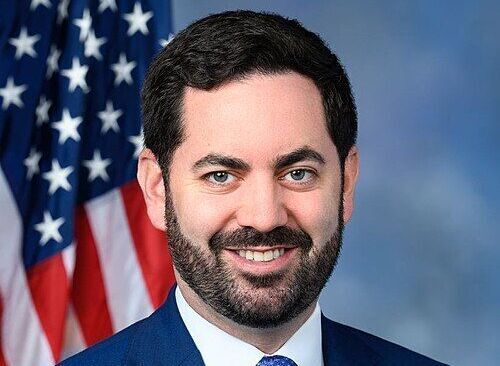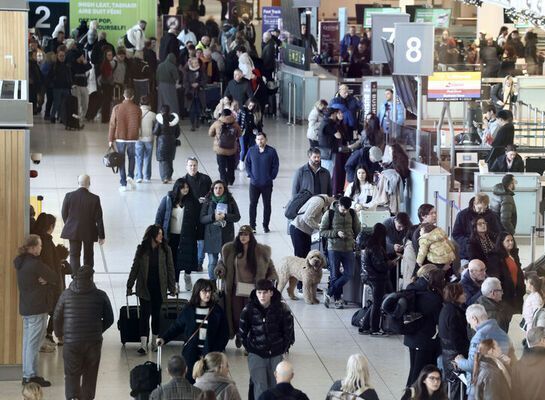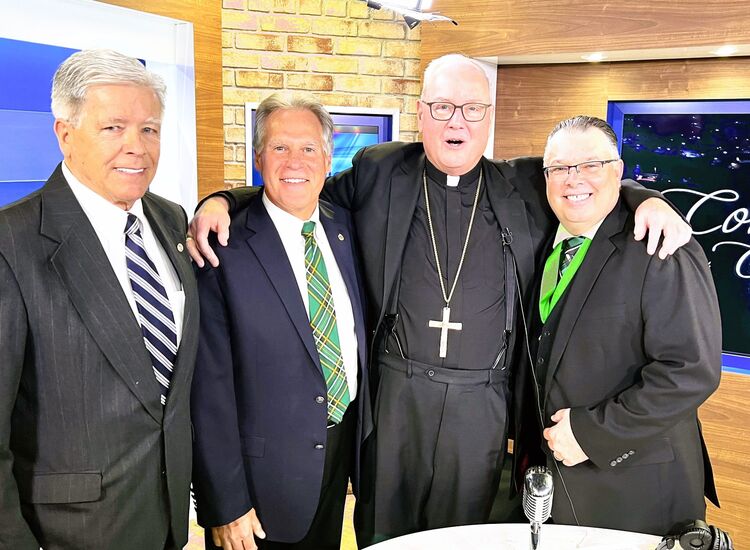Between the Lines / Peter McDermott
We've mentioned in the Echo the alliances involving writers and musicians in recent times - most notably between Peter Quinn and Mick Moloney and Colum McCann and Joe Hurley. Those four gentlemen and scholars are New York based, but now, direct from Ireland, as they used to say in the bar ads, comes the hit of the Kilkenny Arts Festival "Whole World Round" featuring the ever popular and entertaining Joseph O'Connor and his new sideman, the musician/filmmaker Philip King. They will put on an afternoon of storytelling, song, and conversation a week from Saturday (May 21 at 2:30) at the New York Public Library for the Performing Arts' Dorothy and Lewis B. Cullman Center, which is located in Lincoln Center. Doors open at 2 p.m. and admission is free.
If you get confused and go a week early (which is the sort of mistake I'd make) you won't be disappointed because poet Eamon Grennan will be one of the featured panelists addressing the topic "My W.B. Yeats" -- that's this coming Saturday at the same time and venue.
All the above is being done in conjunction with the "Ireland America: The Ties that Bind" exhibition and sponsored by Imagine Ireland.
Escaping poverty
Another noteworthy event is "Tracing Your Irish Roots" with Drew University's Professor Christine Kinealy on next Wednesday, May 18, at 6 p.m. It will take place at Our Lady of the Rosary Church opposite the Manhattan terminal of the Staten Island Ferry (rsvp@irishnetwork-nyc-com).
I thought, though, one communication I got about it struck a rather odd chord. It said in part: "The parish was also a mission for receiving poor Irish women who left due to poverty and British misrule in the 1800s before Ellis Ireland existed and it befriended more than 100,000 immigrant girls (of which 65,000 are listed in the parish archives)."
Actually, the mission was opened in 1886 and all of the names of the girls and women in the archives — which were rediscovered and publicized by Fr. Peter Meehan — are from the Ellis Island period, 1892 onwards, and not before it.
My problem here is that this is genealogy we're talking about, which generally to date has been a hobby. People should approach it with an open mind and not with someone else's narrative being imposed on it beforehand.
I'm a big-government liberal, so I'm inclined to believe anyway that wherever there's poverty there's some sort of misrule involved. But the presumptuous nationalist spin tends to obscure other issues, such as gender and gradations of class, which are often more important in understanding family history.
It should not be forgotten that the Irish processed at "Ellis Ireland" (some of my own relatives among them) were a minority. The period through World War I is more generally associated with two groups that faced even more difficult circumstances. The embattled Jewish people were giving up on Czarist Russia, but also on old-time religion and religious authority; Southern Italians, most of them illiterate, were escaping the grinding chronic poverty and backwardness of their region. Immigrants, wherever they came from, tended not to be the poorest of the poor. Rather they were people who wanted to avoid that fate, which in the Italian South could have meant living an existence (on a landed estate for instance) that was no better than that of a chained animal.
Ireland at this time had a rather more advanced civil society (and physical infrastructure) than either Eastern Europe or Southern Italy. Indeed it's almost impossible to see how democratic self-government based on consent could have taken root without it.
The great nationalist leader Charles Stewart Parnell died just three months before Ellis Island was opened, but the next couple of decades at home were no less important that the tumultuous 1912-1923 period. They saw crucial land reform, the growth of the union movement, the further development of the political culture (universal male suffrage had been won in the 1880s) and the beginnings of the welfare state, as well the famous happenings on the cultural front.









